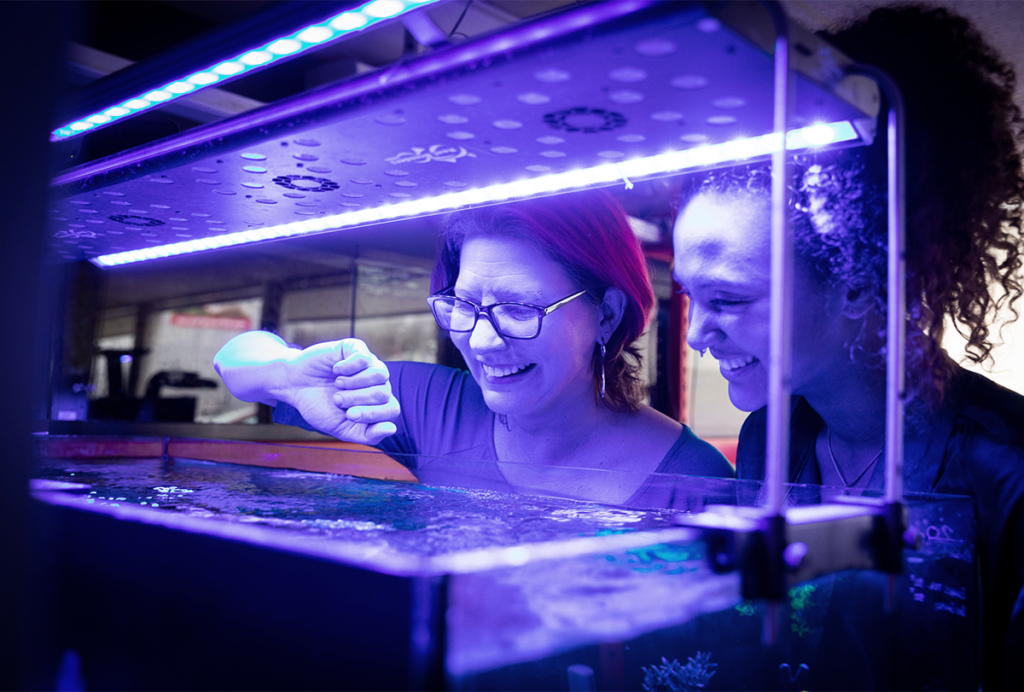Maria Cortes
Illustrator
From this contributor
International scientific collaboration is more necessary—yet more challenging—than ever
These partnerships accelerate neuroscience by enabling researchers to share resources and expertise, as well as generate more relevant and reproducible results. But new federal funding restrictions in the United States are putting such collaborations in jeopardy.

International scientific collaboration is more necessary—yet more challenging—than ever
Explore more from The Transmitter
Michael Breakspear and Mac Shine explain how brain processing changes across neural population scales
Breakspear and Shine find a scale-free property of brain activity that is conserved across diverse species, suggesting that a universal principle of brain activity underlies cognition.
Michael Breakspear and Mac Shine explain how brain processing changes across neural population scales
Breakspear and Shine find a scale-free property of brain activity that is conserved across diverse species, suggesting that a universal principle of brain activity underlies cognition.
Cephalopods, vision’s next frontier
For decades, scientists have been teased by the strange but inaccessible cephalopod visual system. Now, thanks to a technological breakthrough from a lab in Oregon, data are finally coming straight from the octopus brain.

Cephalopods, vision’s next frontier
For decades, scientists have been teased by the strange but inaccessible cephalopod visual system. Now, thanks to a technological breakthrough from a lab in Oregon, data are finally coming straight from the octopus brain.
Keith Hengen and Woodrow Shew explore criticality and cognition
The two discuss their evolving views of brain criticality as a central organizing principle of cognition, development and learning.
Keith Hengen and Woodrow Shew explore criticality and cognition
The two discuss their evolving views of brain criticality as a central organizing principle of cognition, development and learning.